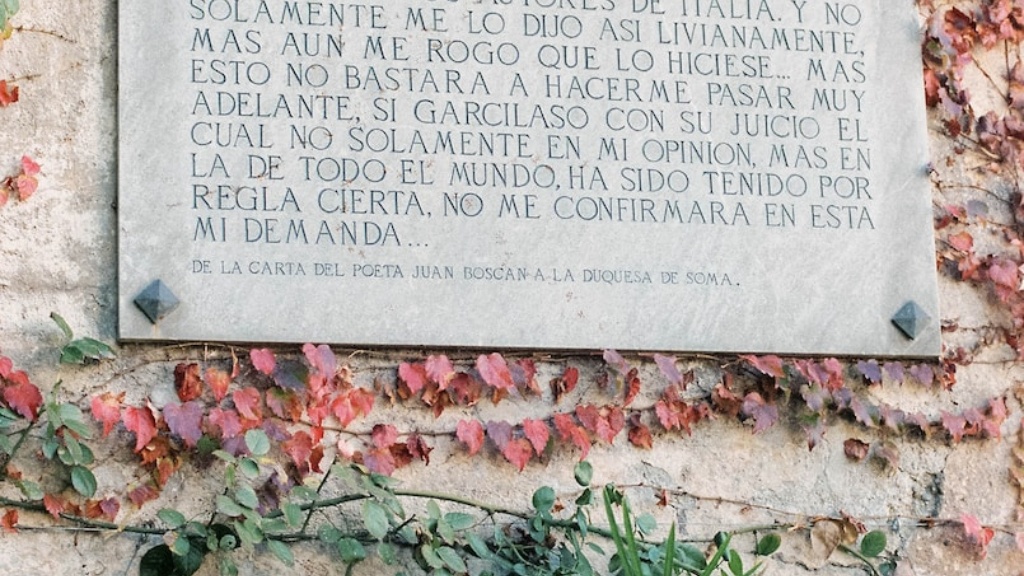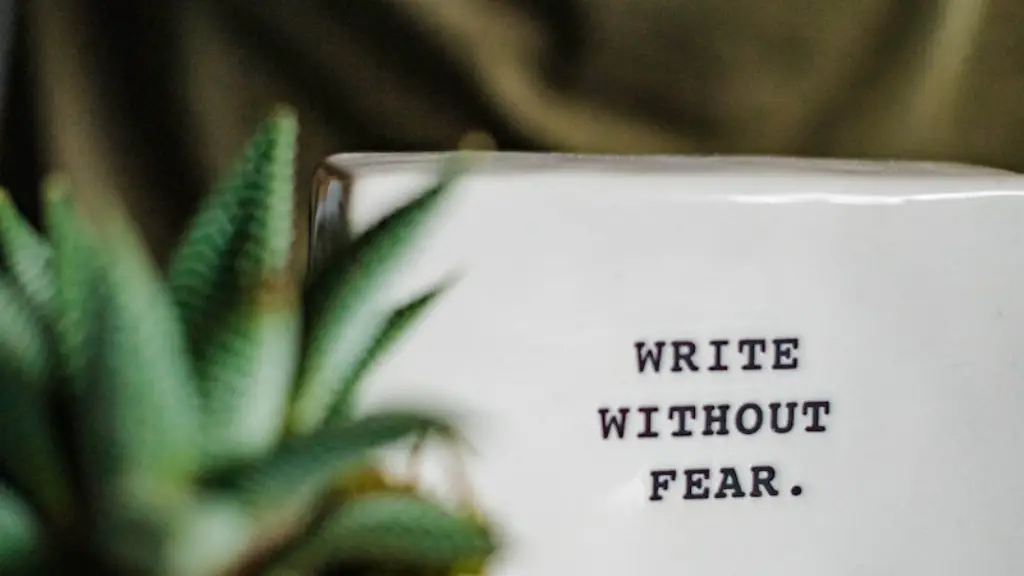Brainstorming Ideas
The process of writing a poem can seem daunting at first. Before diving into the task of composing a piece, it helps to spend some time brainstorming ideas. You can start by jotting down phrases, words or powerful images that come to mind, or collecting items that have personal meaning and stitching them together into a poem. Ideas can come from a wide range of sources, such as nature, popular culture, music, and even everyday life experiences. It’s a good idea to keep a journal of your ideas for future reference.
Deciding on a Form and Structure
Once you have some ideas in mind, you must decide on the form and structure of the poem. Different types of poems include cinquain, acrostic, haiku, limerick, sonnet, and free verse. Each type of poem has its own unique structure and set of characteristics. The form you choose for the poetry will depend on the message you want to convey. Consider the topic, imagery, and emotions involved when making your choice.
Crafting Language and Imagery
By using creative language, you can fashion beautiful and powerful images to profess your emotions in a poem. You can easily express difficult concepts and feelings by wielding familiar words and combining them in new or unexpected ways. Play around with language, using repetition and other poetically devices to engage your readers and draw them in.
Editing and Polishing
When you have created a draft of your poem, it’s important to go back and edit it. One way to do this is to read the poem out loud to get an idea of how it flows and to identify any awkward phrasing. You may also want to ask someone to give you an honest opinion of your poem. Take their feedback into consideration and make any necessary changes. Go through the poem multiple times and trust your instincts if something does not sound right, reorganize the words until you are satisfied with the end product.
Scanning for Meaning and Connection
A poem can be a powerful tool for expressing not only ideas but also emotions. When you are writing poetry, it is important to pay attention to the layers of meaning behind the words. Think about the themes, symbols, and metaphors you have used and how they all work together in the poem. Your job as the poet is to connect these ideas and try to capture something true and meaningful to the human experience.
Training and Improving as a Poet
The craft of poetry is constantly evolving, so it is important to keep up your skills and stay informed of the latest trends in creative writing. One of the best ways to become a better poet is to read the works of other poets. Analysing the works of talented authors can give you a good idea of how to write poems that are both meaningful and memorable.
You may also want to consider taking a class or attending a poetry workshop. Doing so will provide you with a chance to work with other writers and exchange ideas. Most importantly, do not be afraid to experiment and make mistakes. Writing poetry is supposed to be fun and learning from failure can be a powerful tool in honing your writing skills.
Performing the Poem
Publishing and performing your poem can be a great way to get your voice heard. If you decide to present it before an audience, make sure to practice ahead of time. You’ll want to bring your own special energy to the stage and project your voice clearly. Whether you decide to recite the poem or recite it with the help of an accompaniment, the goal is to move the audience. Breathe deeply and allow yourself to feel the emotions in the words you wrote.
Submitting Poems for Publication
Submitting your poem for publication can be a rewarding experience. Online platforms such as poetry websites and review blogs are great for sharing your work. You can also send your poem to a literary journal or magazine. It’s helpful to research publishers and their submission guidelines in advance. Keep in mind that your poem will likely go through several rounds of revisions before being accepted.
Exploring Different Literary Genres
Poetry is not just a single form but an ever-evolving art form that can be adapted to other genres. For example, spoken word is an exciting blend of poetry and performance. In addition, modern poets are experimenting with form and writing using tools such as Twitter and Instagram, both of which have created a new wave of poetic expression. By exploring different genres and forms, you can create something totally unique and meaningful.
Connecting With Other Poets
As a poet, you are part of a vast community of writers, from renowned authors to up-and-coming artists. To become a quality poet, it helps to collaborate with other writers and discuss your work. By connecting with other poets and sharing your ideas, you can brainstorm, refine and perfect your craft in a friendly and supportive environment.
Keeping Up With the Latest Poetic Trends
Researching the latest trends in poetry can give you an idea of what pieces are doing well in the literary world. You can use this knowledge to hone your skills and write poems that resonate with modern readers. Additionally, stay informed by reading the works of other authors, listening to podcasts and attending readings and workshops. An open mind and dedication to learning will be beneficial in your pursuit of poetic greatness.


